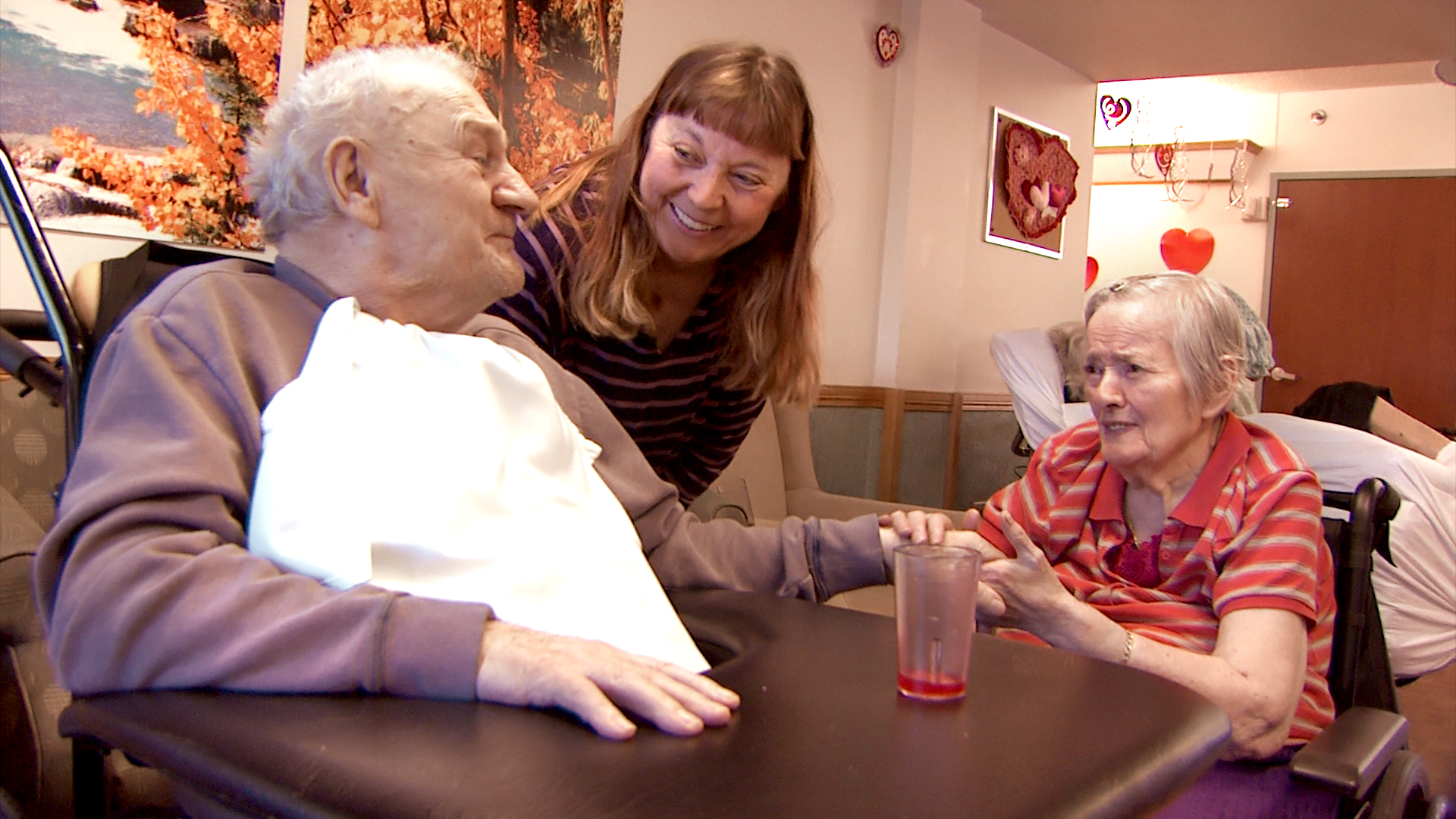
August 2, 2016

Violet Zahn enjoys a visit with her father Charlie and mother Mary at the Carewest George Boyack long-term care facility. Fewer than 18 per cent of residents at the George Boyack are taking antipsychotic medicines, down from 26 per cent two years ago.
Story by Jennifer Green
Clinicians across the country can now access an AHS toolkit on the appropriate use of antipsychotics (AUA) in long-term care through Choosing Wisely Canada. The toolkit, called When Psychosis Isn’t the Diagnosis, focuses on reducing the amount of antipsychotics patients receive in long-term care and shifts the culture to a more patient-friendly approach.
“Many of the resources were developed by the AUA project team in response to questions staff had,” says Mollie Cole, manager, Seniors Health Strategic Clinical Network. “They developed an outline for the care teams to follow that guides them to think about building awareness and creating a desire to make a change, strategies to help the teams learn skills to set up medication review meetings and to discuss what other care strategies could work to address the needs of residents long-term care.”
The toolkit has evolved over the past few years to include videos, interactive learning modules, helpful links and quality improvement resources to engage families, support sleep and prevent delirium. Choosing Wisely Canada recognized the effectiveness of the toolkit, and was eager to share it with the rest of the country.
“We continue to try to find examples of organizations that have done really good work to address these areas and have had meaningful results come from their work,” says Tai Huynh, co-founder of Choosing Wisely Canada. “The work out of Alberta was interesting to us. They have really good results to show for it. That’s pretty amazing.”
One example of the toolkit’s impact can be seen at the Carewest George Boyack long-term care facility. Fewer than 18 per cent of residents are taking antipsychotic medicines, down from 26 per cent two years ago.
“People are really collaborating. The project has given them a lot more confidence and you notice the difference is very dramatic and with that comes their enthusiasm,” says Peggy Jones, Care Manager with Carewest George Boyack. “The nursing aids and LPNs have the confidence now to speak to other nursing aids...they will suggest maybe try something different.”
You can learn more about the impact the appropriate use of antipsychotics has on a patient and their family, and the role the care team has in that process, by watching this video.
“Alberta is the leading province in this work and we usually hold Alberta as the example if provinces want to start their own local campaigns,” Tai says.